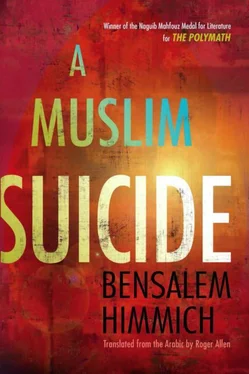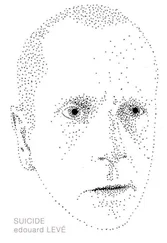Al-Nur: A mountain to the east of Mecca, where the cave of al-Hira', the site of Muhammad's earliest revelations, is to be found.
Porphyry (c. 234–305): A student of Plotinus. His most famous work is the Isagoge.
Proclus (412–485): A Neoplatonist philosopher and commentator on the dialogues of Plato. The Arabic version of his Elements of Theology was translated into Latin as Liber de Causis.
Pyrrho (c. 360–270 BC): A Greek philosopher who is credited with being the first of the Skeptics.
Qudsi hadith: While hadith are reports on the statements and behavior of the Prophet Muhammad during his lifetime, the Qudsi hadith are considered to be the actual statements of Muhammad.
Al-Qushayri (986-1074): A renowned Sufi scholar whose most famous work is Risala ila al-Sufiyya (Epistle for Sufis).
Rabi'a al-'Adawiyya of Basra (717–801): Revered as one of the earliest Sufis and an exponent of the concept of divine love, something that she expressed in her poetic output.
Raquta: Now Ricote, a village to the northwest of Murcia.
Al-Rashid: The successor of Abu al-'Ula Idris al-Ma'mun (q.v.) as Almohad ruler (1232-42).
Al-Razi, Abu Bakr Muhammad ibn Zakariya (865–925): Known in Europe as "Rhazes," Al-Razi was a pioneer in the study and practice of medicine. His nine-volume work, Al-Hawi, is a comprehensive manual on medicine.
Riyad: The traditional Moroccan residence, centered around a courtyard open to the sky with a fountain and (often) various fruit trees. Around it on three sides are tall-ceilinged rooms. There are usually two other floors above the ground-floor level where different generations of the family will live.
Salah al-din (Saladin, 1138–1193): An illustrious leader of Muslim armies against the invading Crusaders.
Sayf al-Dawla al-Hamdani (916–967): The ruler of the Hamdanid dynasty, whose court at Aleppo was to attract a number of renowned figures, including the philosopher Al-Farabi and the poet Al-Mutanabbi.
Sayyida Nafisa (d. 824): A descendant of the Prophet Muhammad through his grandson, Al-Hasan. She remains highly revered in Egypt, and her tomb-shrine is in the City of the Dead, south of the Ibn Tulun mosque.
Seljuks: The dynasty of Turkish-Persian origins that took control of the secular aspects of the eastern Islamic domains in Baghdad in 1057. It was their capture of Jerusalem that instigated the First Crusade in 1096-97.
Seven Sleepers of Ephesus: A legend mentioned in Sura 18 of the Qur'an, whereby a group of young people in Ephesus were entombed in a cave (they are often known as "the people of the cave") and woke up centuries later in a very different (Christian) era.
Al-Shadhili al-Ghumari (c. 1196–1258): Born in the Ghumara region of Morocco, he was the founder of one of the major Sufi brotherhoods, the Shadhiliyya order. Later in life he moved first to Tunisia and thence to Egypt, from where his influence spread. The ahzab (litanies) are among his relatively few published works.
Al-Shafi'i: see Idris al-Shafi'i.
Shaqura: Now known as the Segura, the river that runs through the city of Murcia.
Al-Sharif al-Idrisi (1100–1166): The geographer who traveled widely before settling in Sicily, where he wrote his famous study Kitab Rujar (Book of Roger), named for King Roger of Sicily.
Shu'ayb Abu Madyan (1126–1198): Widely regarded as a foundational figure for Sufism in Spain, much revered by his successors, including Ibn al-'Arabi. Like Ibn Sabin he left his native Spain (Seville in his case) and moved to Fez in Morocco, then undertook the pilgrimage to Mecca. Unlike Ibn Sabin, he was able to return to the Maghrib, where he died.
Al-Shushtari: see Abu al-Hasan al-Shushtari.
Sibawayh (760-c. 793): Author of the most famous work on Arabic grammar, known as Al-Kitab.
Al-Suhrawardi (1155–1191): A renowned Sufi scholar and founder of the school of philosophy known as "Ishraqi" (Illuminist). He is often referred to as Al-Magtul" (the slain) because he was executed on orders from Saladin's son, Al-Malik al-Zahir.
Surat al-Duha (the Forenoon): The 93rd Sura of the Qur'an.
Tagine: One of the most characteristic dishes in Moroccan cuisine, a mixture of couscous and meat, fish, or vegetables, often blended with fruit and cooked in a vessel with a domed top that is called by the same name.
Tariq Ibn Ziyad: The renowned Amazigh ("Berber") general who led the Muslim forces across the straits in 71 °CE, passing the rock that was later named after him "Tariq's Mountain" (Jabal Tariq, Gibraltar).
Al-Tawhidi, Abu Hayyan (c. 930-1023): A scholar renowned for both his literary talents (especially as a prose stylist and compiler of anecdote) and his philosophical and mystical writings.
Theologia: Attributed to Aristotle but in fact a compilation of extracts from the Enneads of Plotinus.
Thawr (Thour): A mountain to the south of the holy city of Mecca.
`Umar ibn al-Khattab (c. 590–644): The second caliph in Islam, also known as "Al-Faruq" (the arbiter).
`Umar ibn Khayyam (1048–1123): Renowned in the West through Fitzgerald's translation of his ruba'iyyat (quatrains), Khayyam wrote poetry in Persian, but was in fact better known in his own time as an algebraist.
Usama ibn Munqidh (1196–1288): Scion of a nobly Syrian family, he was a chronicler of the Crusades. His autobiography is entitled Kitab al-I`tibar (Book of Admonition).
Uways al-Qarni: Born in the Yemen, he converted to Islam during the time of the Prophet Muhammad and was martyred at the Battle of Siffin in 657.
"Woe for al-Mu'tasim" ("wa-al-Mu`tasimah!"): A proverbial expression coined in the name of the Abbasid caliph Al-Mu`tasim after a disastrous defeat of Muslim forces by the Byzantine army in early 838. The defeat was swiftly avenged at the Battle of Amoreum in the same year.
Ya`qub al-Mansur (c. 1160–1199): Almohad ruler who inflicted significant defeats on the Christian armies in Spain during his reign.
Yusuf ibn Tashufin: see Ibn Tashufin.
Al-Zahir Rukn al-din Baybars (1223–1277): The redoubtable general of the Mamluk armies who not only defeated the Crusaders' forces under Louis IX of France, but also defeated the Mongol armies at the Battle of `Ayn Jalut in 1260. He went on to become ruler of Egypt and surrounding areas as the Mamluk dynasty extended its sway.
Zajal: A type of strophic poetry that emerged in Spain during the Islamic period and spread eastward.
Zamzam: The name of the well inside the sacred enclosure in Mecca. It is associated with Abraham, for whom God provided water to slake the thirst of his son, Ismail.
Zanati: The Zanata tribe along with the Sanhaja and Masmuda were major African confederacies of Amazigh ["Berber"] tribes. They are used by the historian Ibn Khaldun (d. 1406) in order to illustrate the virtues of the tribal life of the desert in the process of developing a sense of group solidarity.
Zanki (Zengi, 1085–1146): An illustrious leader of Muslim armies against the invading Crusaders.
Zawiya: A word that, in the Maghribi context, means a small mosque and shrine, but that might also include an adjoining hostel for visitors and-as in the case of the one on Jabal Musa in Sabta-an asylum and hospital.
1. Please note that items in the text indicated with an asterisk (') are discussed in the glossary. 













